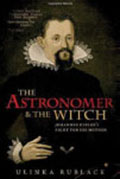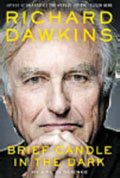
THE ASTRONOMER AND THE WITCH: Johannes Kepler’s Fight forhis Mother. Ulinka Rublack. Astronomer Johannes Kepler was a key figure in the scientific revolution, defending the Copernican view of a sun-centered universe. However, his role in defending those accused of witchcraft is far less well known. In 1615, when Kepler was at the height of his career, his mother Katharina was accused of witchcraft. The trial lasted six years, and Kepler conducted his mother’s de fense. In The Astronomer and the Witch, Ulinka Rublack discusses this episode in Kepler’s life and how it offers a fascinating glimpse into his worldview. While providing rational explanations for phenomena that his mother’s accusers attributed to witchcraft—for example, Rublack notes that Katharina Kepler had accidentally brought suspicion on herself by asking for her fathers’s skull, since “Skulls ranked among the legally recognized means of sorcery and could render anyone dealing with them under suspicion of being a witch”—Kepler did not question the existence of magic or witchcraft; in fact, he believed in them. And Kepler was hardly alone; as Brian Levack notes in his book The Witch-Hunt in Early Modern Europe, “In the context of witchcraft the word ‘skepticism’ usually denotes the attitudes of those who doubt or deny the existence of witches or the possibility of their crime. Judicial skeptics did not necessarily adopt such a stance. . . . Judicial skepticism could, and in most cases did, coexist with a firm belief in the reality and possibility of the crime” (p. 254). The Astronomer and the Witch is a fascinating blend of science biography and examination of witchcraft beliefs and persecutions. Oxford University Press, 2015, 272 pp, $29.95.
